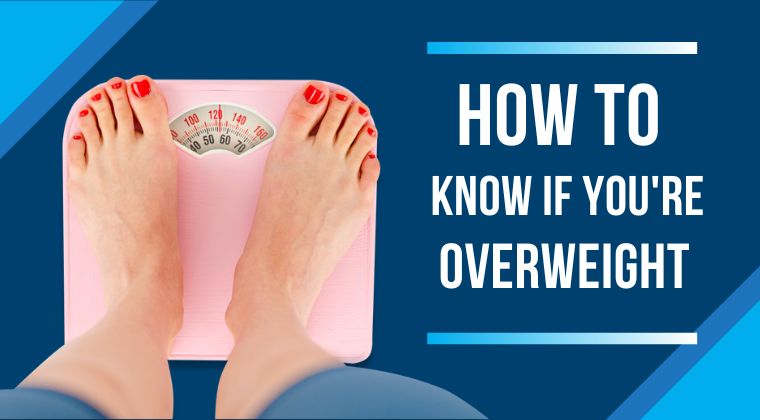In general, an increase in the size and number of fat cells within the body constitutes being overweight. Overweight people are often those that have a larger body fat percentage than their height. Obesity is a phrase used to describe a person’s weight when it reaches levels that can physically harm their internal organs, muscles, joints, and other body components over time. The term “morbid obesity” is frequently used by medical experts to describe obesity that begins to cause irreversible damage.
How to know if you are Overweight?
As per experts, a person who is overweight has a BMI of 25 to 30. Of fact, even while BMI can estimate weight, the CDC points out that it is not a reliable indicator of health or potential health hazards. Importantly, while having a healthy BMI is always a good thing, there are additional metrics that may be used to assess whether someone is overweight and whether action needs to be taken.
What are the factors that determine you’re overweight?
For the sake of this debate, being overweight is defined as exceeding a commonly recognized healthy weight, having a BMI of 25 or higher, and experiencing negative health effects as a result of their weight.
Examples of negative health effects of being overweight include, but are not limited to:
- Diabetes
- Hypertension and cardiovascular dysfunction
- Cancer
- Digestive system problems
- Depression
- poor blood flow
- Snoring
- Heartburn
- Joint exhaustion
- Recurring pain
Additionally, those who are overweight typically exercise less than those who are healthier. Because muscle weighs more than fat, fit, muscular people can actually weigh more than someone who is “overweight” and has a higher BMI than that person. As a result, weight is a reason why it’s difficult to use BMI to determine if you’re overweight.
How to use Waist Measurement to determine your weight
If you’re seeking a numerical indicator of your weight, your waist measurement is far more accurate than your BMI. Why? A fit individual will often have a slim waistline, but an overweight person may have some additional weight in unneeded places. Men and women who are overweight have a waistline of at least 40 inches for men and at least 35 inches for women.
How do you deal with being Overweight?
If you do find that you are overweight, it’s critical to act now before you progress to a more severe state of obesity. Obesity is a frequent problem worldwide . Despite this, it may often be avoided if you face your challenge head-on.
If you discover that you are overweight, talk to your doctor about developing a diet and activity plan that suits both your lifestyle and your health needs. It’s possible to follow a diet and exercise to lose weight and stop being overweight if you don’t have any of the comorbidities related to being overweight that are stated above.
Consult an expert to battle weight issues
If you are struggling with your weight, approach Dr. Girish Juneja today for an expert consultation. Dr. Girish Juneja is a surgeon of excellence for bariatric surgery (weight loss) with more than 30 years of experience in laparoscopic surgery and has helped several people battle obesity.

Dr. Girish Juneja

Dr. Girish Juneja
Related Posts








